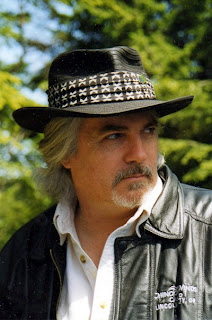Ever heard of a book-writing coach? Neither had I. But if Lisa Tener is representative, I want one! Here are 5 ways to make sure you're writing the right book (I'm paraphrasing):
1) What is your vision for this book?
Lisa Tener writes:
a) What will this book do for your life, your work (or business), your lifestyle?;For fiction writers you might ask what sort of emotional impact you want your book to have on your readers. Storytellers always want to evoke emotion in their audience, but there are many different emotions. Do you want them angry about an injustice? Sad about the death of a great love? Happy that the star-crossed lovers found love at last?
b) How will this book affect your readers? What will their lives be like before and after reading it?; and
c) Imagine how your book will affect the larger world -- it will. In the earlier example, you may end up focusing solely on the Internet and protecting children, rather than all computer issues. If you can't state your vision in one sentence, it's not a workable vision.
2) Who are your core readers?
Lisa Tener writes:
[P]icture a dartboard. The bull's eye is your core reader. That's the person you imagine when you're writing your title, your outline, your bio and every word in-between. Write with this core audience in mind and your book will be conversational (versus self-conscious), compelling (versus boring), and accessible (versus scattered) -- and it will have a lot more impact.
A number of writers say they keep a notion of an 'ideal reader' at the back of their minds as they write. Personally I do find this sometimes helps tell a story; I think it's psychological. It's easier to tell a story to an audience, even if it's an audience of one! Often ones ideal reader isn't imaginary, so if you write romances and your ideal reader is a voracious reader of romance, this will help keep you writing a romance (versus, say, a tale of urban fantasy with romantic elements).
3) Determine the theme
The theme of a story is generally something you read between the lines. For instance in the movie Shrek I'd say the main theme was about learning to let people in, learning to be vulnerable so that one can make real connections with others. I'm sure there's a better way of saying that! Perhaps one could say the theme for Snow White was that true love would be victorious in the end. Knowing the theme of your story from the beginning will help keep you from getting sidetracked.
4) Determine the scope
Fiction writers spin tales about entire imaginary civilizations so the question of where to start and stop a book can be difficult. As one writes one finds out more about ones characters as well as the social/political/physical world(s) they inhabit. It is often difficult to know where to draw the finish line, especially if one is starting what could be a series. If you're writing a high fantasy novel this could be fine--I've used my Lord of the Rings volumes as a paperweight more than once!--but readers of, for instance, urban fantasy are used to shorter reads, so a longer book could be a problem.
5) Have an outline
I know it's often said there are two kinds of writers: pantsers and plotters. Pantsers are those who, like Stephen King, forgo outlining in favor of a more organic approach. King views stories as real things that exist (more or less) independently of the writer, and that the writer must discover like a paleontologist would uncover the fossilized bones of an ancient creature. Plotters, on the other hand, outline in great and glorious detail before they start writing (or shortly thereafter).
Personally, I think most folks are some combination of panter and plotter. A lot of writers I've talked with have told me they make some sort of outline but then they feel free to ignore it. Or not. I think whether one outlines is personal and I'd hate to say that a writer has to outline, because I don't think that's true. I do think--and Stephen King said this in On Writing--that it does help save the writer from getting halfway through a book and then abandoning the effort because he or she's not sure where the story is going.
You can read Lisa Tener's entire article here: Write the Right Book.
Other articles you might be interested in:
- The End Of The Professional Writer?
- Indie Writers: 10 Things Not To Do
- How To Be A Writer
Thanks to The Passive Voice Blog for mentioning Lisa Tener's article.
Photo credit: library_mistress










